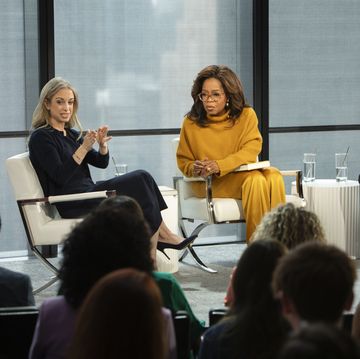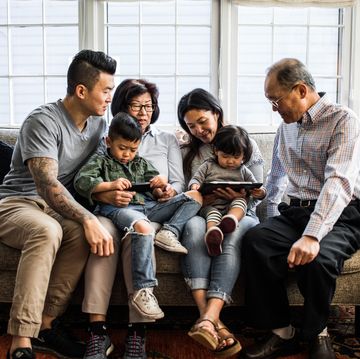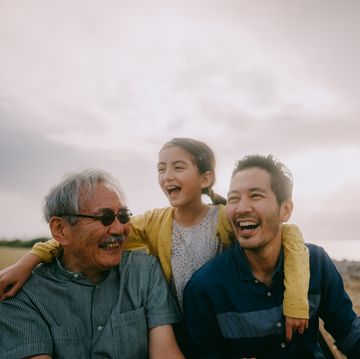- Free-range parenting aims to foster independence in children by giving them greater autonomy and less adult supervision. It is not a total abdication of rules, the way permissive parenting is.
- The term "free-range parenting" was coined by Lenore Skenazy, who famously let her 9-year-old son find his way home on the New York City subway system alone.
- Parents interested in raising free-range kids may run up against laws in their states that dictate the ages at which kids are allowed to be left unattended in a car or at home.
Parents today are always talking about the increasing level of involvement they have in their kids' lives, whether it's to bemoan the increasing number of hours they dedicate to parenting tasks, or to chide each other for hovering or "helicopter" parenting. For those looking to take a step back, there's free-range parenting.
Free-range parenting means giving kids more freedom and less supervision.
The idea of the "free-range kids" movement started with Lenore Skenazy, who, as a columnist for the New York Sun, wrote a story about letting her 9-year-old son find his way home alone on the New York City subway. That decision caused such an uproar — she was called "America's Worst Mom" — that she was invited on a slew of talk shows to discuss how involved parents are in their kids' lives in this day and age. She writes on her website that she founded the free-range kids movement, "to separate the real dangers from the ones foisted upon us by the media, and by other folks with things to sell."
Now, free-range parenting is generally seen as the opposite of helicopter parenting. "Free-range parenting emphasizes the child’s functioning independently with judicious parental supervision," says says Dr. Kyle Pruett, M.D., Clinical Professor of Child Psychiatry at Yale School of Medicine and member of the Educational Advisory Board at the Goddard School. "It permits enough exploration for kids to come up against limits naturally." So free-range parents might allow things like playing outside alone or going to and from school without a chaperone, and let kids solve their own problems as they arise.
According to followers, the benefits are many: "Free-range parenting supporters say that it encourages problem-solving skills, promotes creativity, strengthens personality formation, and builds confidence," Dr. Pruett says. "They also say that it makes children more resourceful."
It does not mean anything goes.
Free-range parenting is not a ruleless world where the kids are left to figure everything out for themselves. That's called permissive parenting, and experts say that parenting style does not lead to good outcomes for kids. "Permissive parenting trades that 'judicious supervision' for the absence of structure or rule enforcement," Dr. Pruett says. "Permissive parenting appeals those who want to befriend rather than raise their children."
"Free-range parenting involves teaching a child skills and acting as a guide if a child makes a mistake," says Amy Morin, LCSW, author of 13 Things Mentally Strong Women Don’t Do. "Free-range parents tend to be loving and nurturing, even though they aren’t afraid to let their kids fall down. Permissive parenting, on the other hand, allow kids to do whatever they want without any oversight or guidance. Free-range parents are also more likely to instill consequences if the natural consequences aren’t going to be a good enough lesson."
But you have to watch out for the law.
Each state has its own patchwork of laws about the ages kids are allowed to be left unattended. The Free-Range Kid website tracks them — and you can see a huge variation in the ages that kids can be legally left alone. "Witness the confusion among state statutes: North Carolina and Maryland under age 8, Oregon under 10, Delaware and Colorado under 12, and Illinois under 14," Dr. Pruett says. "Red Cross babysitting courses aim at 11- to 15-year-olds. What’s a parent to do? Pay attention to what you feel is right for your child and your relationship with your child — but get informed about the law." Be warned that some states even have different laws governing when you can leave your kids home alone and when you can leave them unattended in their car. Running afoul of one of these laws can lead to a huge legal nightmare that takes years to untangle.
So far, only Utah has passed a free-range parenting law, which protects the right of parents to let their kids go for periods of time unsupervised. The law states that Utah will allow "a child, whose basic needs are met and who is of sufficient age and maturity to avoid harm or unreasonable risk of harm, to engage in independent activities."
How to get started free-range parenting.
- Learn about the laws that govern your state.
- "Here is a baby step for a preschooler," says Dr. Pruett. "Let go of her hand at a public play space and keep eye contact. Let her wander as you take deep breaths."
- For an older kid, depending on age and maturity, you can decide as a family on what first "mission" you'd like to accomplish, like walking to and from school. Talk about what to do if problems pop up, like what to do if your child gets lost or needs to ask for directions.

















